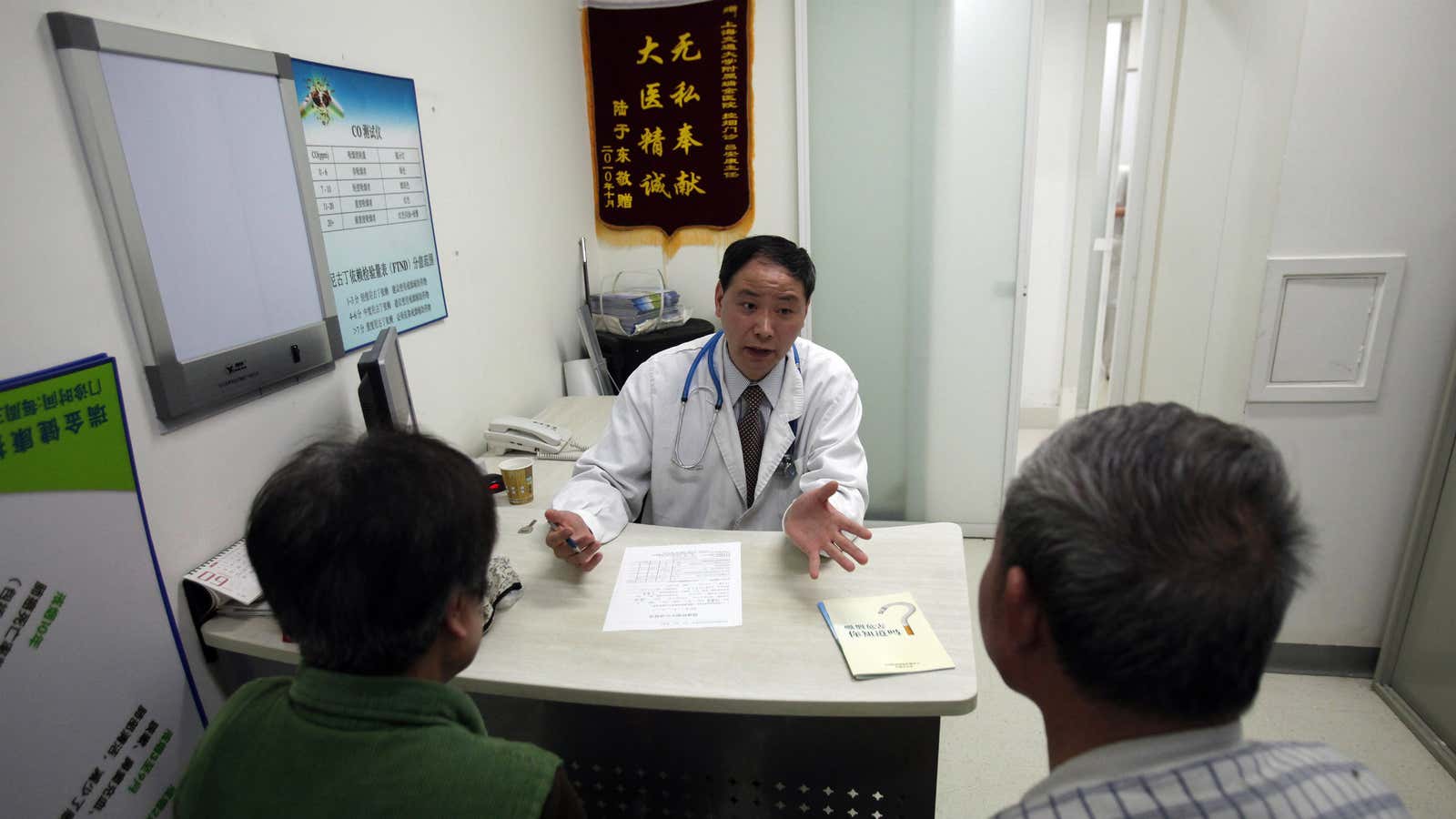Foreign pharmaceutical firms are in China for the same reason bank robbers are in banks—that’s where the money is. But the widening crackdown on bribery, which has already ensnared executives from GlaxoSmithKline and AstraZeneca, is threatening to upend the business opportunities that have made China irresistible—not just because of the country’s immense size and growing healthcare spending, but the perverse incentives that have made it one of the world’s most expensive places to fill a prescription.
AstraZeneca was one of the first foreign drug companies to make significant investments in China, and it said on Thursday that it is redoubling sales efforts despite the widening bribery investigation, which has already resulted in the detention of an AstraZeneca sales rep in Shanghai. CEO Pascal Soriot told reporters on Thursday that the company is adding more sales people as China’s medical coverage expands.
As many news outlets have reported, pharmaceutical salespeople play a crucial yet often unsavory role in the Chinese healthcare system. As the World Health Organization explained in a 2011 report, 95% of health facilities are state-owned hospitals, but the hospitals receive almost no funding from the government. As a result, hospitals and doctors are “dependent on the profits generated from diagnostic investigations, procedures and drug sales,” the WHO said, as well as a steady stream of kickbacks and payments from drug companies, patients and medical suppliers. That helps explain why drug sales make up more than 40% of total Chinese healthcare spending, compared to about 18% of healthcare spending in the US.
Cash-strapped doctors have little incentive to prescribe generic drugs—even though China has some of the lowest prices for generics in the world—and a strong financial incentive to prescribe expensive name-brand drugs at inflated prices. Dutch-based non-profit Health Action International did a study on China’s Shaanxi province in 2012, and found that drug prices for non-generic Western pharmaceuticals were being sold for 11 times the international reference price.
So despite the increasingly ominous business climate, pharmaceutical firms are steaming ahead in China, even as evidence of endemic corruption grows. US-based Baxter Pharmaceutical admitted to the Wall Street Journal on Friday that it uncovered “expense violations”—company salespeople routing illicit payments to health officials via travel agencies—that were similar to those alleged against GlaxoSmithKline. Baxter investigated the charges last year but only disclosed their existence when the Journal asked about them this week.
The bribery crackdown is a sign that Beijing is getting increasingly serious about bringing down drug prices, and indeed GlaxoSmithKline has signaled in the wake of the bribery allegations that it plans to cut its prices. And sooner or later, Chinese officials may find a way to revamp how doctors and hospitals are paid, reducing the temptation for illicit payouts. But for now, regardless of a few pharmaceutical executives languishing in detention, Big Pharma just can’t quit China and its messy, lucrative healthcare market.
